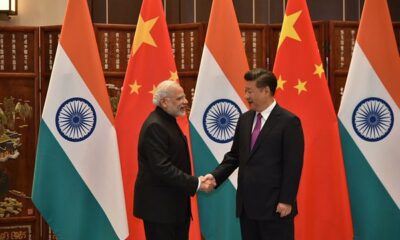Educational Issues
Tweaking university education for youth empowerment -By Ayo Olukotun


Ayo Olukotun
“The inadequacy of the curricula of many Nigerian universities also plays out in the fact that some courses are still run as of the old. These courses are not given interdisciplinary coverage or assimilated into the digital media to make them relevant in the present day”.
–Distinguished University of Texas Professor, Toyin Falola, at Adekunle Ajasin University Convocation Lecture, Thursday, December 7, 2017.
Much discussed at scholarly, polemical and street corner fora, is the crisis of university education in Nigeria. Yoked to a colonial model which it once replicated but now merely parodies; it faces multiple challenges of chronic underfunding, endemic or structured disorder, over centralisation, provincialism in an unflattering sense, disconnect from shop floor realities of the workplace and as Professor Toyin Falola, quoted in the opening paragraph argued, it lacks topicality. Convocation lectures are, of course, not short takes. They are encountered as elaborate interventions, often engaging on burning national or global issues. In the hands of Falola, it became the opportunity for extended and incisive reflections, running into nearly 60 pages, on the woes of the Nigerian academy, with particular reference to its tragic neglect, or downgrade of youth empowerment.
Yet, this was not, as Falola observed in a banter, the pompously dismissive thumbs down of Nigerian higher education by a privileged Nigerian Professor, based in the established Ivory Towers of the United States. Rather, the lecture is sensitive to context and clime, historicises the problems, and avoids the afro pessimism and cynicism that see the university system as too far gone downhill to be repaired or reformed.
The lecture can be read as a manifesto about changing the university system from its current fixation with theoretical knowledge, to one that is vocation oriented and connects better with the job market. In other words, universities must be wooed away from splendid isolation from the rest of society to becoming crucial players in the social and economic concerns of their immediate surroundings. It can also be read as a reform agenda for a system which is called upon to be more student centred, undertake curriculum innovations, align more with the national and global arcade, as well as, overcome the ethical no man’s land and predatory habits which re-echo the decay of values in the larger society.
Regarding the call for universities to be more vocation centred and to empower their students to meet the demands of increasing graduates’ unemployment, some might feel that the lecture swings too much in the direction of a Deweyian, pragmatic approach to education, which privileges an utilitarian mindset and intersects with the neoliberal emphasis on market-driven higher education. In other words, it may stir a controversy regarding the balance between theoretical knowledge and the practical application of that knowledge in the context of the changing needs of employers.
Of course, this is an issue that has been much debated within the academy, and cannot be resolved within the confines of one convocation lecture. However, Falola illuminates the problem by sketching out a global perspective, in particular the experience of the United States where employers are increasingly voicing concerns about the disconnect between university training and the requirements of the workplace. For example, he reports the complaints of The Association of American Colleges and Universities to the effect that university graduates are “severely underprepared for current jobs”. Rather than remain high flown or merely theoretical, employers are calling for the kind of university education that will better prepare American youths to take their places in a post-industrial and capitalist set up. This is all the more so, considering that as Falola argues, only 27 per cent of university graduates in the United States hold down jobs that relate to the discipline in which they specialised.
In the Nigerian case, the percentage may even be lower while, of course, graduate unemployment has become a distinct social and political problem. While not suggesting that universities should exist only to serve the job market, Falola calls for a revolution of sorts that will better link university education to job creation and entrepreneurial skills. Although not entirely new, he brings to bear on the subject the holistic perspective of an insider and top player in the Nigerian and American university contexts. He summons as evidence of the growing pathos the case of a 22-year-old Nigerian female graduate from Ogun State who made a first class in Physics and Electronics, and after two years of joblessness had to employ Twitter to advertise herself in order to solicit for a job. Obviously, her plight is only a metaphor for the sorry and desperate condition of thousands of unemployed graduates.
Matters have not been helped, Falola insists, by the limited interventions of successive governments, which tend to be more political than substantive. Hence, according to the lecturer, numerous programmes such as Youth Empowerment Scheme, State Economic Development Strategy, Youth Enterprise with Innovation in Nigeria (You-win), Subsidy Reinvestment and Empowerment Programme (SURE-P) as well as N-Power, under the President Muhammadu Buhari administration, have merely scratched the surface of the problem, without substantially altering or staving off the looming disaster.
Worse still, Falola laments a situation where before these various programmes, introduced by successive regimes have been consolidated, they were discarded by their successors, who merely gave new names to the same kind of programmes. That speaks to the problem of overpoliticisation and the swamping of governance by political competition. But that is a matter for another day.
Before getting to the plethora of recommendations made by the lecturer regarding youth empowerment, let me fill the reader in on this take on the current status of our universities and the compelling need for reform. Falola criticises a situation whereby the National Universities Commission imposes on our universities, a uniform curriculum through the so-called benchmark and accreditation requirements. Furthermore, he laments the descent of the campuses into theatres of war and dirty politics, driven by ethnicity, religion, and patron client ties. To quote him, “a considerable number of Nigerian universities are not managed by intellectual minds but by ethnic and religious bigots or by profit driven entrepreneurs”. He might also have added that the leadership recruitment process is such that lobbyists and power technocrats tend to get appointed into top positions because, as in the larger society, they make office-seeking, rather than intellectualism, full time vocations.
What then is to be done? Falola’s prescriptions flow logically from his diagnoses. For example, he recommends curricula that align better with the needs of the national and global communities. Although there may be a tension between the national and the global, the lecturer navigates this by insisting that new university curricula must both reflect state of the art concepts, while taking cognisance of the pressing needs to empower youths in an increasingly jobless economy. Furthermore, he calls for an overhaul of the incentive and reward system so as to reward excellence and productivity while penalising mediocrity and drooling. That is not all. Universities must incorporate skills and courses in photography, fashion designing, shoe making among others as part of the search for an empowered youth segment.
This is a mouthful; one can only hope that policymakers are listening.



















